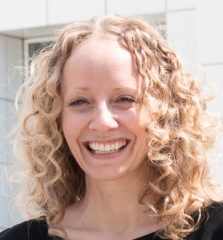It’s a great pleasure to welcome Prof. Amy Kuceyeski at our lab for an invited presentation!
Title: Biological and Artificial Neural Networks
Date: June 30th, 16h CET
Location: https://fau.zoom.us/webinar/register/WN_tq7hF4HWSBGnYbyjjenYTA
Abstract: The recent explosion of machine learning literature has centered largely around Artificial Neural Networks (ANNs). These networks, originally inspired by biological neural networks – specifically, how the human brain processes visual information (Rosenblatt et al., 1958) – have proved remarkably useful for classification or regression problems of many types. Meanwhile, in the field of neuroscience, researchers have incorporated ANNs into “encoding models” that predict neural responses to visual stimuli and, furthermore, have been shown to reflect structure and function of the visual processing pathway. This observation has led to speculation that primate ventral visual stream may have evolved to be an optimal system for object recognition/detection in the same way that ANNs are identifying optimal computational architectures. Here, we introduce NeuroGen, a novel encoding/generative model architecture designed to synthesize realistic images predicted to maximize or minimize activation in pre-selected regions of the human visual cortex. We then apply this framework as a discovery architecture to amplify differences in regional and individual brain response patterns to visual stimuli, and, furthermore, use it to generate synthetic images predicted to achieve levels of activation above and beyond what is achievable with natural images. If it can be shown with future work that the synthetic images actually produce the desired target responses, this approach could be used to perform macro-scale, non-invasive neuronal population control in humans.
Short Bio: Amy Kuceyeski is an Associate Professor in the Department of Radiology at Weill Cornell Medicine and in Computational Biology at Cornell University. For the past decade, Amy has been interested in understanding how the human brain works in order to better diagnose, prognose and treat neurological disease and injury. The CoCo lab’s main focus is on using quantitative methods, including machine learning, applied to multi-modal neuroimaging data to map brain-behavior relationships. The lab’s overall goal is to develop individualized therapies that can boost natural recovery mechanisms and support recovery after neurological disease or injury.

